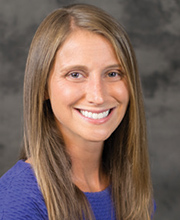Compensatory and Recovery Services for Students with ADHD
 Closed schools. Endless virtual meetings. A classroom at your kitchen table. Sound familiar? It is difficult to think of a single facet of school that the COVID-19 pandemic did not change for students, families, and school staff.
Closed schools. Endless virtual meetings. A classroom at your kitchen table. Sound familiar? It is difficult to think of a single facet of school that the COVID-19 pandemic did not change for students, families, and school staff.
As schools have transitioned back to in-person instruction, parents (and legal guardians) and school staff are noticing the impact of the COVID-19 school closures on students. In many situations, students with disabilities may not have received the special education and related services they were entitled to, and some have struggled to catch up. Some students with ADHD had difficulty sitting in front of a computer screen all day. Students who fell behind might be entitled to compensatory or recovery services to make up for harm caused by services they missed.
Services and accommodations for students with ADHD
The Individuals with Disabilities Education Act (IDEA) and Section 504 of the Rehabilitation Act indicate that eligible students with disabilities are entitled to a free appropriate public education (FAPE). These services are provided through two types of legal documents: either an Individualized Education Program (IEP) or a Section 504 plan.
To be eligible for an IEP, a student must have a disability that adversely impacts their educational performance, and they must need special education and related services to meet their unique needs. ADHD is not specifically listed as a disability in the IDEA. Instead, students with ADHD may be eligible for an IEP under the federal eligibility category of other health impairment (OHI) if their ADHD is severe enough to impact their learning to the extent that they require specialized instruction.
A Section 504 plan provides reasonable accommodations and services for a student with a disability who does not require special education and related services. Students with ADHD who are not eligible for an IEP may be eligible for a Section 504 plan. To qualify for a Section 504 plan, a student must have a physical or mental impairment that substantially limits at least one major life activity. Section 504 and the Amendments Act outline examples of major life activities, including, but not limited to, learning, reading, concentrating, and thinking. Examples of accommodations for students with ADHD are movement breaks, extended time on assignments, preferential seating, access to fidgets, and assistance with organization.
School staff were supposed to implement IEPs and Section 504 plans while schools were open during the COVID-19 pandemic, no matter the method of instruction. When considering eligibility for compensatory services, it is important to be familiar with the accommodations and services documented in a student’s IEP or Section 504 plan. For example, a student might receive occupational therapy once a week for 30 minutes, be guaranteed extra time to take their tests and quizzes, or have an aide to help them stay focused while completing assignments.
During the COVID-19 pandemic, school staff were required to implement the entire IEP or Section 504 plan unless there was a documented reason on why specific services or accommodations could not be implemented. For example, it may not have been necessary or possible to provide preferential seating during online instruction.
Compensatory services
 Compensatory services are an equitable remedy recognized by courts to address the failure or inability of the local educational agency (LEA), to provide appropriate services.* LEAs must look backwards to make an individualized determination of whether the student received appropriate services and whether the student was harmed by the lack of appropriate services.
Compensatory services are an equitable remedy recognized by courts to address the failure or inability of the local educational agency (LEA), to provide appropriate services.* LEAs must look backwards to make an individualized determination of whether the student received appropriate services and whether the student was harmed by the lack of appropriate services.
If a student had been making progress before school closures at a certain rate and then that progress slowed or stopped—or even regressed—that could be considered evidence of harm. On the other hand, if a student is doing just as well now as before schools closed, they likely will not qualify for compensatory education because there was no harm to their education.
Some common compensatory education services might include tutoring, make-up sessions with a therapist, reimbursement for past services parents paid for, or even training for school personnel.
The compensatory services provided may not be the same as the number of hours of missed services. For example, a student who missed twenty thirty-minute sessions of small group specialized instruction may receive fewer hours of individual tutoring services. Other students may require more services than the hours of services that they missed to mitigate the harm. Not all students will be eligible for compensatory services.
Teams of people knowledgeable about the student should determine if compensatory services are appropriate based on data collected prior to the COVID-19 pandemic, data collected during the COVID-19 pandemic, and data collected once students return to in-person instruction. Data can include, but is not limited to, progress on IEP goals and objectives, report cards, progress reports, formal assessments, and informal assessments.
If you are a parent or legal guardian and the school staff have not provided information about compensatory services for your student, you should reach out to school staff to ask whether staff have made a compensatory services determination, and if so, ask for documentation of the data used to make the determination. There are complaint and appeal procedures for parents and guardians who do not agree with the LEA’s compensatory services determination.
Recovery services
Some states use the term “recovery services” to describe a broad category of services intended to address the negative impacts of the COVID-19 pandemic. Some states offer recovery services to all children without making an individualized determination, while others focus on specific student populations (for example, students with disabilities or other at-risk children). Recovery services likely will not qualify as compensatory services in situations where LEAs do not make an individualized determination.
In states that are providing recovery services, students who are not eligible for compensatory services may still qualify for recovery services. This could include students with disabilities who received a FAPE during the COVID-19 pandemic. The focus of these services is to help close learning gaps that may have occurred during the COVID-19 pandemic.
Extended school year services
Some students need more continuous instruction to maintain progress made during the regular school year. Extended school year (ESY) services are individualized services that are designed to give a child with an IEP the opportunity to meet objectives in their IEP that cannot be achieved without education beyond the regular school year. ESY services are intended to be forward looking, not to make up for a past denial of FAPE. ESY services cannot replace compensatory services, but student who is eligible for ESY services can also be eligible for compensatory services.
Where is the funding coming from
Compensatory services are provided at no cost to students or families as part of a FAPE. Schools receive supplementary funding for COVID Recovery Services from a few sources, the largest being the federal American Rescue Plan (ARP) Act and its Elementary and Secondary School Emergency Relief (ESSER) funds. Other federal funds and state funds can be used for compensatory services as well, as providing these services is required to comply with IDEA and Section 504.


 Mallory Finn Legg is a staff attorney at Project HEAL (Health, Education, Advocacy, and Law), a community-based program of the Maryland Center for Developmental Disabilities at Kennedy Krieger Institute. Project HEAL is Maryland’s only comprehensive medical-legal partnership, which provides advocacy and legal services for low- and moderate-income children with disabilities who receive clinical services at Kennedy Krieger. She earned a bachelor’s degree in sociology from the University of Delaware and a Juris Doctor at the University of Maryland Francis King Carey School of Law. She serves on the development and membership committees for the Council of Parent Attorneys and Advocates.
Mallory Finn Legg is a staff attorney at Project HEAL (Health, Education, Advocacy, and Law), a community-based program of the Maryland Center for Developmental Disabilities at Kennedy Krieger Institute. Project HEAL is Maryland’s only comprehensive medical-legal partnership, which provides advocacy and legal services for low- and moderate-income children with disabilities who receive clinical services at Kennedy Krieger. She earned a bachelor’s degree in sociology from the University of Delaware and a Juris Doctor at the University of Maryland Francis King Carey School of Law. She serves on the development and membership committees for the Council of Parent Attorneys and Advocates. 